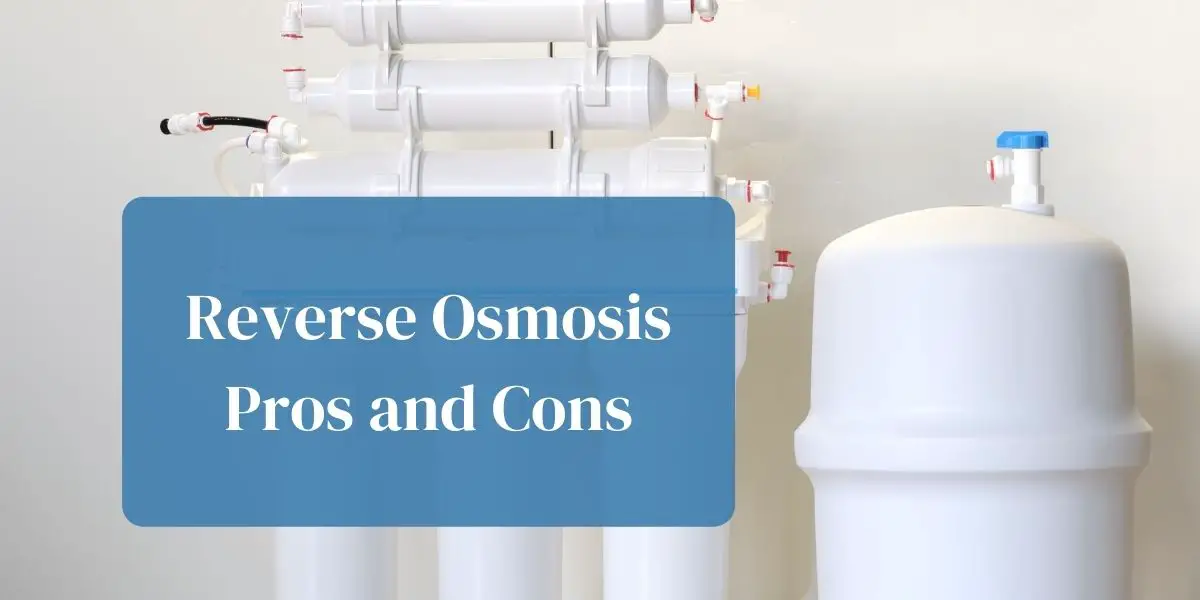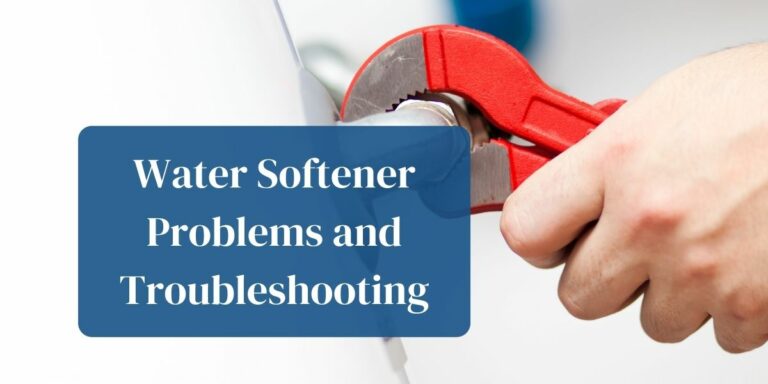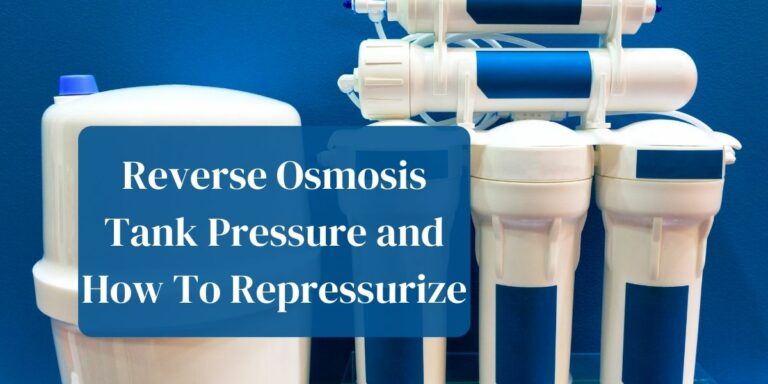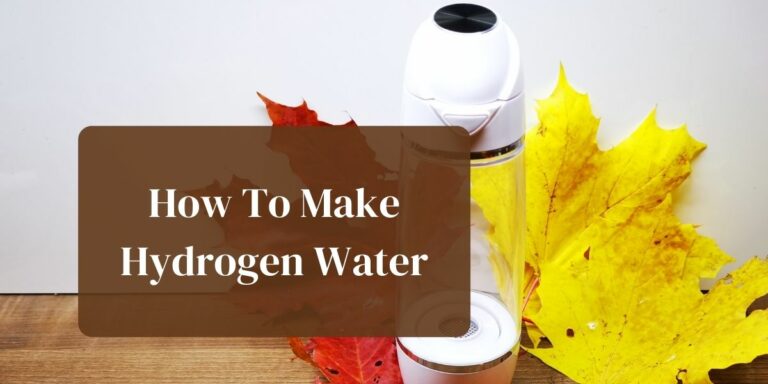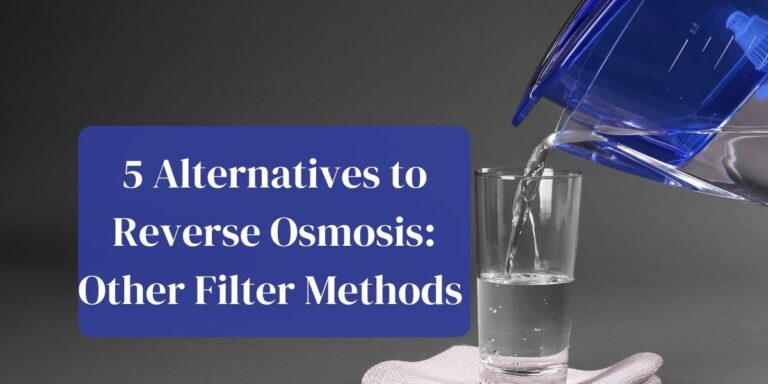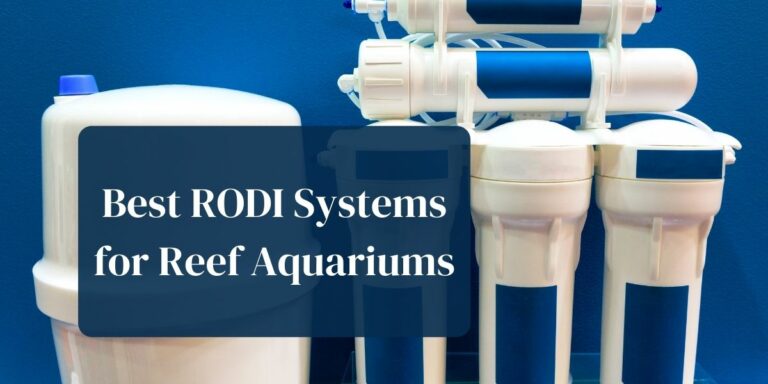Reverse Osmosis is a much discussed water filtration method. And while reverse osmosis does have lots of benefits, there are some negatives too. So, to make an informed decision about your water filtration, why not take a look at our pros and cons of reverse osmosis overview?
Table of Contents
- What is reverse osmosis?
- How does reverse osmosis work?
- Reverse osmosis pros and benefits
- Reverse osmosis cons and disadvantages
What is reverse osmosis?

Reverse osmosis is a water filtration method that uses a semi-permeable membrane. The membrane only allows particles of a certain size to pass through, which means it effectively filters out ions, unwanted molecules and other larger impurities.
Another one of the benefits of reverse osmosis is that it uses applied pressure to overcome so-called osmotic pressure. The basis of this principle is chemical potential differences. Because of this differences, a natural pressure creates a solvent and a saturated stream.
Of course, applied pressure in reverse osmosis is just one of the reverse osmosis benefits that makes this method straightforward. Of course, there are also benefits when it comes to the filtered water.
To help you understand reverse osmosis in a bit more detail, let’s take a closer look at the reverse osmosis system and how it delivers good quality water.
How does reverse osmosis work?
So, how does reverse osmosis remove impurities exactly. Imagine a certain supply of water on top of a semi-permeable membrane. As mentioned previously, this membrane only lets through a certain amount of particles. When pressure is applied to this water, the water is pushed through the membrane.
The water that passed through is reverse osmosis water, as larger impurities remain on the other side of the membrane and do not come through.
Reverse osmosis pros and benefits
A method such as reverse osmosis does come with its fair share of benefits, but also some disadvantages. Let’s take a closer look at the pros and cons of reverse osmosis, which could be a deciding factor when you choose water filtration for your home.
Best filtering capability
Reverse osmosis is one of the most thorough filtering methods. So, this is undoubtedly one of the most important facts in our pros and cons of reverse osmosis overview.
There are substances in our drinking water that we rather do not want to drink. Good examples of this are lead, chlorine, and detergents. These substances that are filtered out are eventually flushed down the drain.
Alternative to bottled water
Since the large majority of impurities are removed in osmosis water, it provides a wonderful alternative to bottled water. This does not only apply to your home, but also for anyone who likes going on a hike. By having a smaller and more compact reverse osmosis system on your person, you always have access to water filtration and can obtain filtered water from any given water source.
Better for cooking
Reverse osmosis water can be better for cooking too. As it contains less impurities, the filtered water will not influence the taste of your cooked pastas and other dishes.
Reverse osmosis cons and disadvantages
While filtered water from a reverse osmosis system has lots of advantages, there are some disadvantages to consider too.
Lots of waste water
As an RO System divides osmosis water in two distinct streams, there will always be a waste stream. In other words, a lot of water can be wasted to turn your tap water into quality water.
Healthy minerals are filtered out
Another big downside to reverse osmosis water is the lack of minerals. As explained earlier, the semi-permeable membrane only allows particles of a certain size to pass and blocks out the others. Unfortunately, this is the case for various minerals that are found in drinking water.
Drinking water naturally contains healthy minerals that the human body needs. So, it is no surprise that many of us get those minerals from food and water. If you drink reverse osmosis water on a regular basis, you may be getting a lack of minerals.
Loss of pressure
A RO system in your home can cause problems with your water pressure. The reason for that can be numerous. The RO system is quite prone to water pressure problems, so it is important to be familiar with the following causes of low water pressure in the RO system.
Clogged filter: reverse osmosis water filters need to be replaced regularly. If you do not replace your filter enough, then the flow of water will reduce greatly over time. In turn, this could cause your RO tank to fill up really slow was well.
Tank pressure: low air pressure in the tank can be another cause of water pressure problems around the home. Ideally, a water tank should have a pressure of seven to eight psi. You can check the pressure by finding the Schrader valve, removing water from the tank, and then use a low pressure gauge to determine the current pressure. If lower than seven to eight psi, simply add some air to get it to the right amount.
Ruptured tank bladder: when you only get a small amount of water (approximately one cup) and then a smaller stream of water, it is highly possible that you have a ruptured tank bladder. When this occurs, you have to change the tank completely, as this is not a problem that can be repaired.
Conclusion
The RO system is brilliant for drinking water, but only in certain areas. If you are prone to a lack of certain minerals, it is usually best to choose another filtration system. Of course, a reverse osmosis system is quite brilliant for the outdoors, especially if you go hiking regularly. Simply take a smaller reverse osmosis water filter with your and filter water from any water source. Doing so gives you immediate access to drinking water without much trouble.
Of course, certain areas also have a lot of impurities that are best processed with a reverse osmosis water filter. Therefore, it is always best to do some research into your ground water to determine which filtration method is best for your area. You can easily find more information from your local water supplier. Alternatively, you can do some tests on your drinking water yourself and look for certain impurities. Afterwards, you can easily determine the best filtration method for your home.
Choosing a filtration system is easy, but it does require a bit of research. But since these systems are an investment, it is always best to do a little research into your ground water as well as the available system to get the best choice possible.

